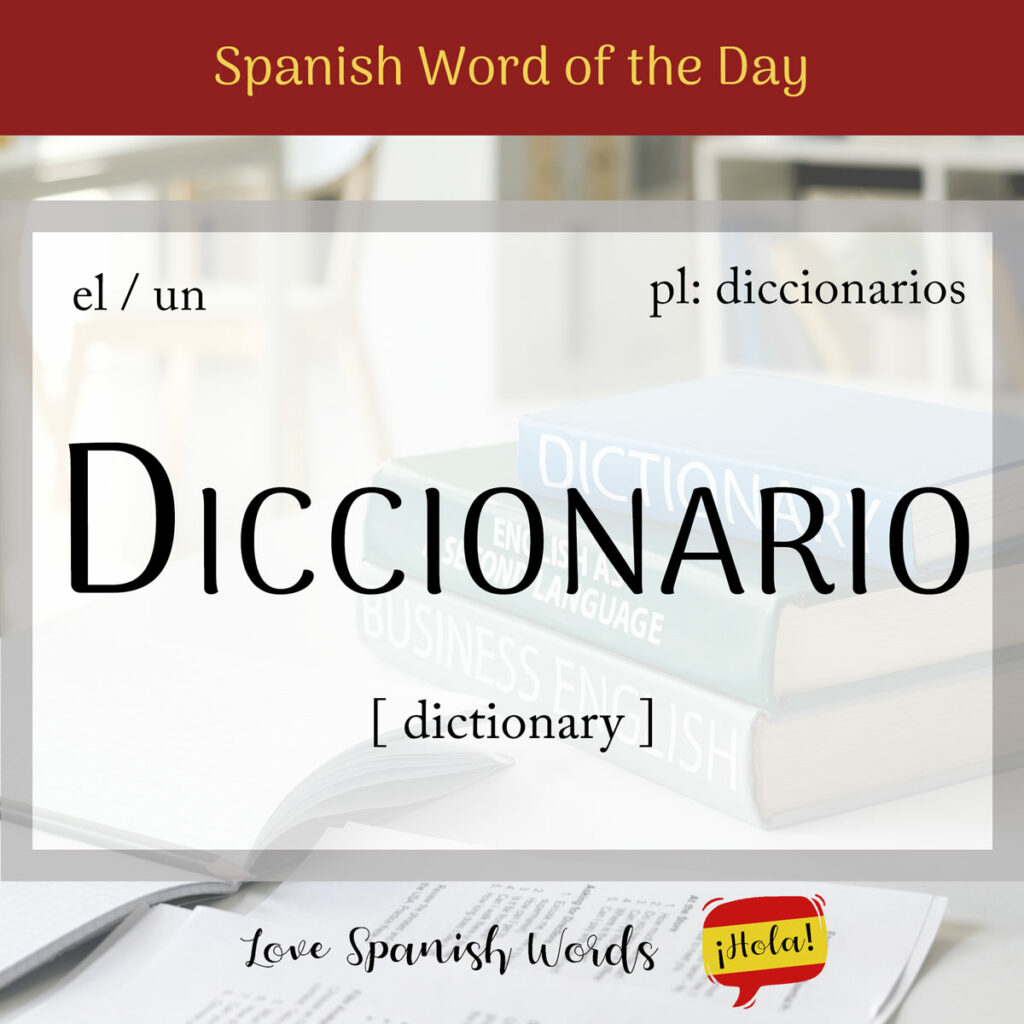Whether you are learning a new language, or simply trying to improve your knowledge of your native tongue, it is always handy to own a dictionary so that you can look up new words and expand your vocabulary. In Spanish, the word for this incredibly useful tool is the similar-sounding diccionario.
Latin American Pronunciation
European Pronunciation

The origin of diccionario, like the English dictionary, can be traced back to the medieval Latin dictionarium (manuale) or dictionarius (liber), meaning manual or book of words. It is a masculine noun that takes the following definite and indefinite articles:
- el diccionario = the dictionary
- un diccionario = a dictionary
- los diccionarios = the dictionaries
- unos diccionarios = some dictionaries
Siempre busco palabras nuevas en el diccionario.
I always look up new words in the dictionary.
In English, we have a specific word for a dictionary of synonyms, known as a thesaurus, whereas in Spanish, it’s simply called a diccionario de sinónimos. Below are some other kinds of dictionaries you might encounter:
- diccionario bilingüe = bilingual dictionary
- diccionario de bolsillo = pocket dictionary
- diccionario enciclopédico = encyclopaedic dictionary
- diccionario geográfico = gazetteer
- diccionario etimológico = etymological dictionary
- diccionario de medicina = medical dictionary
- diccionario monolingüe = monolingual dictionary
- diccionario técnico = technical dictionary
But, of course, since you’re all studying Spanish, the dictionary you’re most likely to need for your studies is a diccionario bilingüe inglés-español, or for the more advanced students among you, a diccionario de español without any English translations.
Many of these dictionaries are now available as diccionarios en línea (online dictionaries) or diccionarios digitales (digital dictionaries) which you can access from your computer or as an app on your phone.
Usé un diccionario en línea para traducir la palabra.
I used an online dictionary to translate the word.

One of the most important verbs you need to learn when talking about dictionaries is buscar, which means to look or to seek. However, in this specific case, it means to look up.
¡Búscalo en el diccionario!
Look it up in the dictionary!

